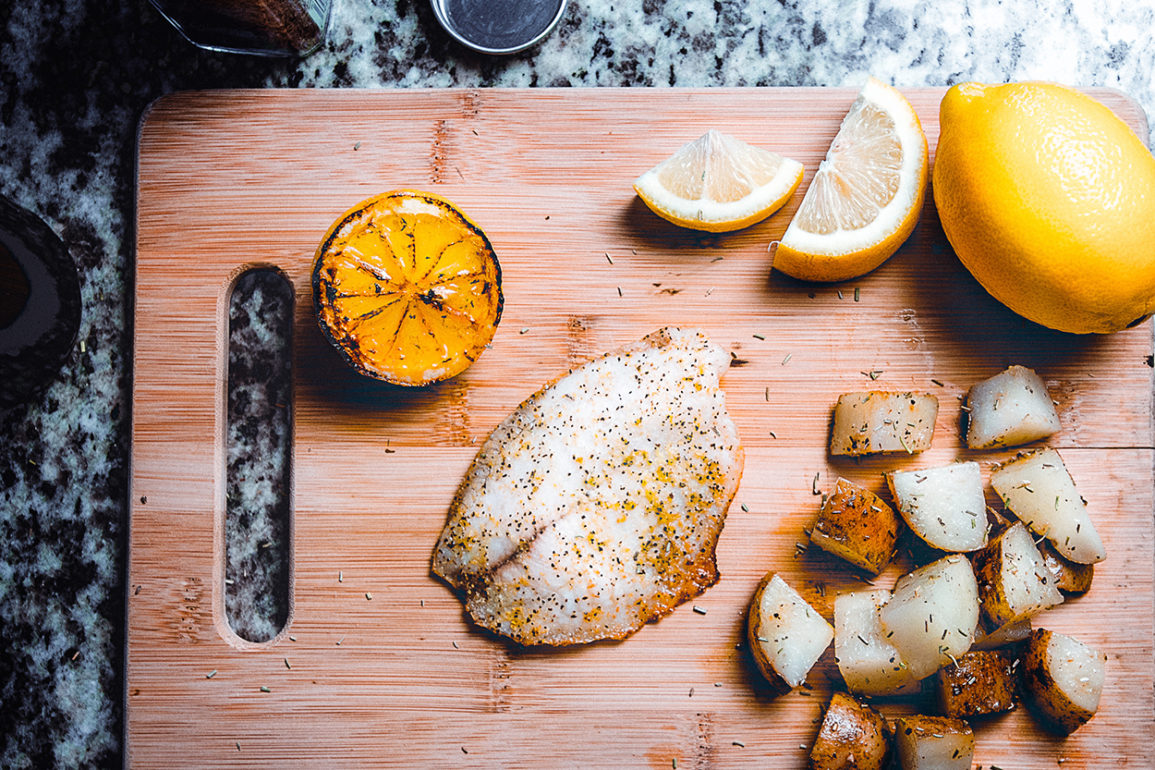No matter what’s going on in a person’s life or who they are, eating is mandatory. Some people use food as a crutch—a way to comfort painful emotions or struggle. For others, it’s the focus of family gatherings or a peaceful hobby. And still others use it for simple survival, nothing more, nothing less. But for Michael Kocet, Ph.D., chair of the Counselor Education Department at The Chicago School, using food for culinary therapy is a way to improve mindfulness.
What is Culinary Therapy?
Culinary therapy—or cooking therapy—is defined by Dr. Kocet as “the therapeutic technique that uses arts, cooking, gastronomy, and an individual’s personal, cultural, and familial relationship with food to address emotional and psychological problems faced by individuals, families, and groups. Culinary therapy involves an exploration of an individual’s relationship with food and how food impacts relationships, as well as psychological well-being and functioning.”
Dr. Kocet started developing his thoughts and practices around culinary therapy while teaching a graduate counseling class one term before joining the faculty at The Chicago School.
“In our field of mental health counseling, we have art therapy, music therapy, dance therapy, drama therapy, but no one’s created cooking therapy,” Dr. Kocet says. “So I set out to create a course about it.”
In his “chocolate meditation” sessions, students would slowly unwrap a small Hershey’s candy bar. Then smell it without eating it. Being mindful of their memories associated with chocolate, Dr. Kocet would then instruct them to place the chocolate into their mouths without chewing it—just letting it melt until it bubbled on their tongues.
The whole point is by eating that little piece of candy mindfully, it changes how we approach food. Patients would tell me that by eating the chocolate in this manner, one was enough. That’s the whole idea of mindful eating.”
“The whole point is by eating that little piece of candy mindfully, it changes how we approach food,” Dr. Kocet says. He has used similar techniques as a therapist in psychiatric settings, working with adolescent patients. “Patients would tell me that by eating the chocolate in this manner, one was enough. That’s the whole idea of mindful eating.”
In addition to students learning about mindfulness and food portion control, Dr. Kocet uses cooking therapy to help both individuals and couples, and to deal with familial issues, including grief.
And participants in cooking therapy don’t necessarily have to be experts in the kitchen. Even burning food was a useful tip to discuss feelings within the class.
“If a client burns something and grows frustrated because he or she burned a dish, you can process with them,” he says. “I may ask if there’s anything in his life that is making them feel burned out or how they can use the experience to learn from other past mistakes.”
By the end of Dr. Kocet’s courses, students complete a food and cooking autobiography to discuss their relationships with food. This includes cultural and religious connections or sharing long-cherished family recipes. They also create their own food culinary project. One student made a board game for children about mindful eating and another worked on a food-based smartphone app.
Dr. Kocet, who was a professor for 13 years prior to joining The Chicago School faculty, knows some of his counseling techniques are out of the box. It’s one of many reasons he wanted to teach at the university. “I respect The Chicago School’s commitment to diversity and inclusion,” he says. “That was very attractive to me.”
Dr. Kocet also has professional accolades as a Licensed Mental Health Counselor, a National Certified Counselor, and an Approved Clinical Supervisor and has earned a Ph.D. in Counselor Education.
In addition to his work with culinary therapy, in 2016, Dr. Kocet helped launch The Chicago School’s M.A. in Clinical Mental Health Counseling program and teaches in the Department of Counselor Education. He hopes to further his work on culinary therapy by developing a pilot study on the creative counseling technique.
“Whether you’re a Licensed Mental Health Counselor like me, someone who just lost a family member, a psychologist, or someone who lives in a food desert, every person on this planet has some kind of relationship with food,” Dr. Kocet says. “I think that we have to look at that more carefully, especially in the U.S. We’re so reliant on fast food. We have to look at how we can eat healthier. Culinary therapy can impact our mood, psychological health, and physical health. I’ve seen time and again that culinary therapy connects really well with the fields of counseling and psychology, and I’ve gained so much from doing this work.”
If you’re interested in learning more about culinary psychology and how to become a culinary therapist, The Chicago School offers many clinical mental health counseling degree programs that can facilitate your growth in the psychology field.
- M.A. in Clinical Mental Health Counseling Online
- M.A. in Clinical Mental Health Counseling in Chicago
- M.A. in Clinical Mental Health Counseling in Dallas
- M.A. in Clinical Mental Health Counseling in Washington D.C.
Are you ready to take the next step?
If you would to learn more about programs at The Chicago School, fill out the form below for more information. You can also apply today through our application portal.

